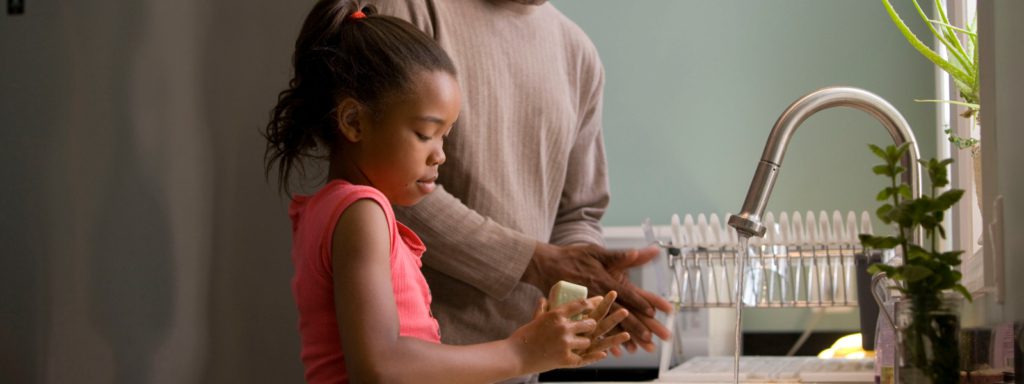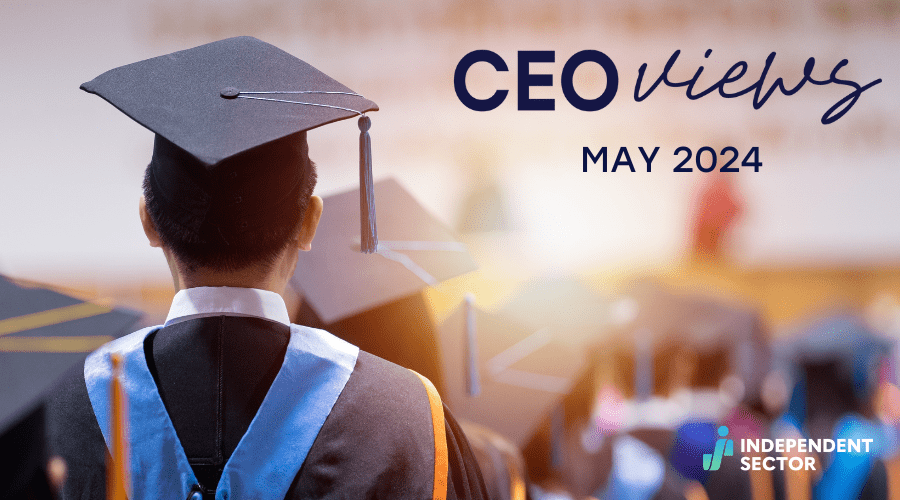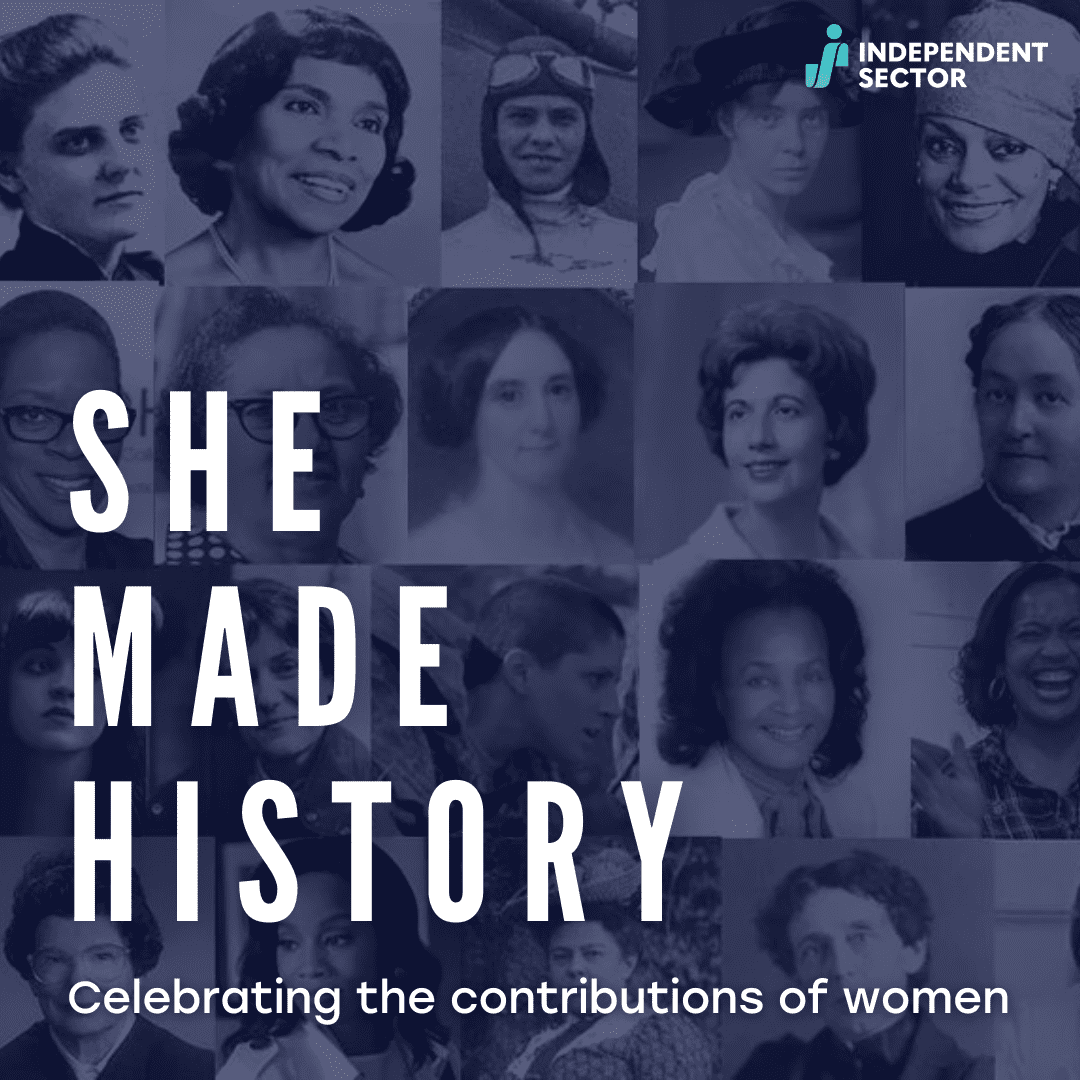IS members represent nonprofits, foundations, and corporations engaged in every kind of charitable endeavor, with missions that reflect the nearly infinite ways of working for the common good. New member Upbring, a Texas-based, faith-inspired nonprofit organization, is working to break the cycle of child abuse by empowering children, families, and communities.
We talked with Knox Kimberly, senior vice president for advocacy and stakeholder relations, and Loren Riemer, vice president for development operations, about their work to make progress toward children’s success through programs including foster care, adoption, education, residential treatment, and community services that address the root causes of child abuse and neglect.
Tell us a little bit about your career path and how you arrived at your present position.
KK: Prior to relocating to Texas seven years ago, I spent nearly my entire life in Arizona. My passion has always been policy, advocacy, and law, and I had the pleasure of founding a highly successful public affairs firm in Arizona, Triadvocates. When my wife Debbie received a new leadership opportunity that brought us to Texas, I transferred my skillset to the nonprofit sector and joined Upbring (formerly known as Lutheran Social Services of the South). I consider myself a recovering lawyer and business lobbyist turned child welfare advocate. In my advocacy role, the need for cross-sector collaboration is tremendous, which is why I was so excited we were joining IS as a member.
Was there a day you remember that was extraordinary or special in your work at Upbring?
LR: The more unusual days, for me, are the most special, such as when we experience a child adoption, or a day when we have to prepare for a hurricane. Our organization covers both children’s welfare and disaster recovery. For example, in 2017, the day we knew Hurricane Harvey was coming and would likely impact one of our children’s centers and several of our foster homes, we quickly communicated with our employees and foster families to provide and coordinate disaster relief.
KK: In the category of our finest hour is what we were able to do during Hurricane Harvey. We maintained contact with our foster families to ensure all the children in our care were safe and the families had shelter, and we engaged in post-natural disaster relief efforts. We’ve entered a new phase in our work where we take disaster response to a new level with disaster preparedness and resiliency at the forefront. In the environment of climate change causing increased numbers of natural disasters, we have to help families and communities become more prepared and resilient.
LR: Many relief efforts focus on preparedness, but do precious little to help in the aftermath of a disaster. In the 12- to 18-month period following a natural disaster, you see an increase in child abuse and neglect that ties into our overarching mission as an agency. In that same vein, as an organization we’ve seen exponential growth in early education programs. We’ve had an increase in input from biological families in becoming advocates for themselves. Our programs serve 13 counties throughout the state, and that list is growing. With our health initiatives or education programs, we’re able to be a part of the development of healthy families beginning when the children are young, therefore engaging with children before they need our post-services.
KK: We’ve experienced that Head Start Preschools can be a little siloed from the education system as a whole, and recognize the program’s prevention value from a child welfare perspective. Our program leaders have developed partnerships with independent school districts, and the Texas Education Agency has picked up on what we’re doing and is seeking to implement it in other areas of the state.
Briefly describe some of the programs or services your organization runs.
KK: In order to break the generational cycle of child abuse, Upbring meets children and families in need where they are and surrounds them with the appropriate services based on five key markers of every child’s success: safety, life skills, education, health, and vocation.
In the past, child welfare has not been a space that’s a hotbed of innovation, but through Upbring Innovation Labs—our in-house innovation department—we’re leveraging partnerships with business, nonprofits, educational institutions, and other organizations to turn ideas into outcomes. These partnerships have the power to create systemic change and contribute to breaking the cycle of child abuse.
How are you advancing diversity, equity, and inclusion through your work?
KK: Data consistently demonstrates that child welfare in Texas and nationally has historically resulted in disparity and disproportionality that adversely impacts African Americans and Native Americans. We’re also cognizant of the fact that we have other marginalized communities, such as the LGBTQ+ community, that also need to be served with more intentionality.
One of the things we’ve done internally is set up a culture ambassadors group. This group is designed to have the hard conversations around the subject that people need to have. We are proud that our workforce is representative of Texas as a whole.
LR: We have almost 1,000 employees across the entire state made up primarily of direct care staff. 57% identify as Hispanic or LatinX, and 15% as Black or African American. We’ve also almost doubled our programs between 2015-2020 and now serve over 30,000 individuals annually. As an organization we strive to ensure our workforce is reflective of the diverse communities and geographies in which we serve.
What is one of your favorite places to be in your community?
KK: I’m afraid I have to play to the stereotype of Texas that everything is bigger and better. My favorite place is the Texas State Capitol in downtown Austin. It’s a historic landmark, a wonderful place to advocate, and is taller than the United States Capitol building.
Is there an unsung hero on your team, staff, or other person connected to your organization that you’d like to recognize?
KK: One of our board members, Jordan Scott, is the chief leader of the Reissa Foundation. He comes from a financially privileged background and is very determined to give back. The foundation focuses on improving the lives of vulnerable populations, particularly child welfare issues in Texas and California. They are an important voice for system transformation and innovation, just as Upbring seeks to be.
Learn more about Upbring at www.upbring.org..
Visit Independent Sector’s members page to learn more about our members and the wide spectrum of their missions.



